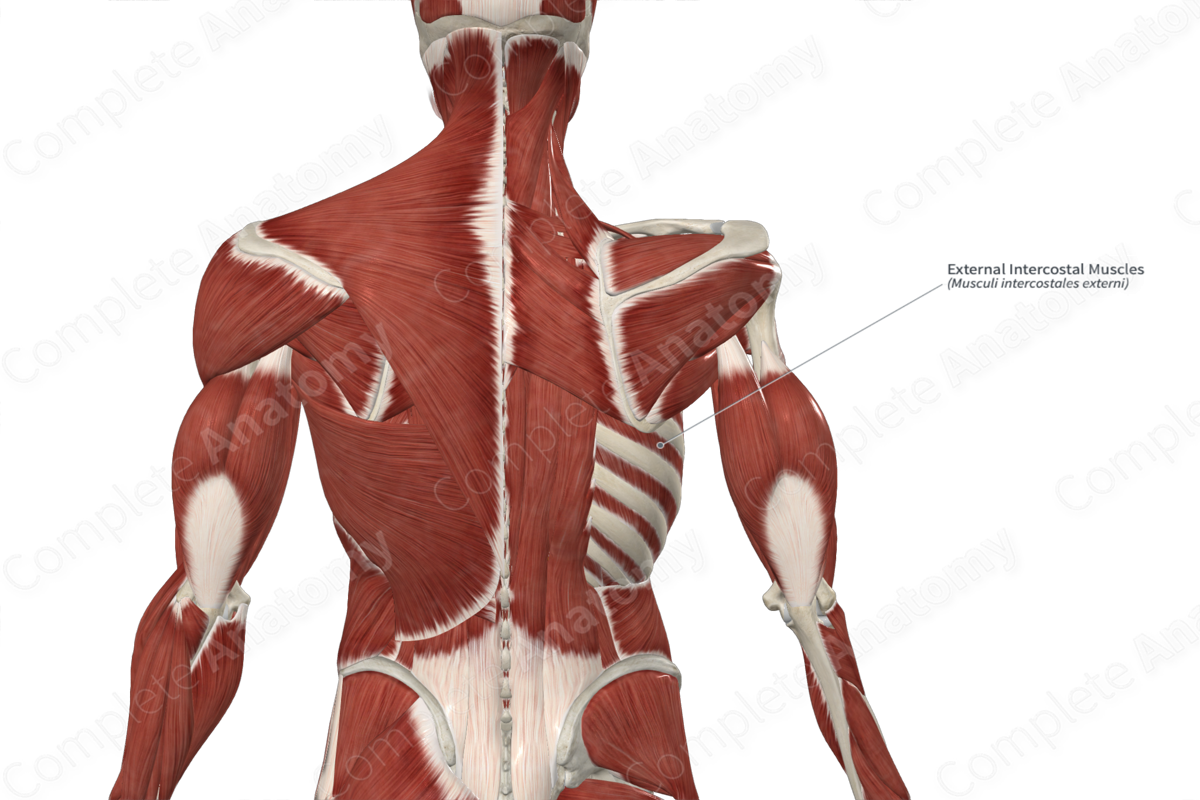
Quick Facts
Origin: Inferior borders of first to eleventh ribs.
Insertion: Superior borders of ribs immediately below origin sites.
Action: Elevate ribs at their costovertebral joints; provide structural support to intercostal spaces.
Innervation: Adjacent intercostal nerves (anterior rami of thoracic nerves).
Arterial Supply: Posterior intercostal arteries, collateral branches of posterior intercostal arteries, anterior intercostal branches of internal thoracic artery, and musculophrenic artery.
Origin
The external intercostal muscles originate from the inferior borders of the first to eleventh ribs.
Insertion
The fibers of the external intercostal muscles travel obliquely, in the opposite direction of the internal and innermost intercostal muscles, where:
- the fibers on the posterior aspect of the thorax travel inferolaterally;
- the fibers on the lateral aspect of the thorax travel anteroinferiorly;
- the fibers on the anterior aspect of the thorax travel inferomedially.
The external intercostal muscles insert onto the superior border of the rib that is immediately below its origin site (i.e., the superior borders of the second to twelfth ribs).
Key Features & Anatomical Relations
The external intercostal muscles are the outer of the three intercostal muscles in the thorax, the other two being the internal and innermost intercostals. They consist of eleven pairs of flat skeletal muscles.
The external intercostal muscles are found within the intercostal spaces, where they extend from the tubercles to the sternal ends of the ribs. At their anterior ends, these muscles are replaced by the aponeurotic external intercostal membrane, which extends to the anteromedial ends of the intercostal spaces.
The external intercostal muscles are located:
- superficial to the internal intercostal muscles;
- deep to the pectoralis major, pectoralis minor, serratus anterior, and external abdominal oblique muscles.
Actions
The external intercostal muscles are involved in multiple actions:
- elevate the ribs at their costovertebral joints during inspiration;
- provide structural support to the intercostal spaces during both inspiration and expiration (Netter, 2011).
References
Netter, F. H. (2011) Atlas of Human Anatomy. Netter Basic Science Series: Saunders/Elsevier.
Actions
The external intercostal muscles are involved in multiple actions:
- elevate the ribs at their costovertebral joints during inspiration;
- provide structural support to the intercostal spaces during both inspiration and expiration (Netter, 2011).
Learn more about this topic from other Elsevier products





